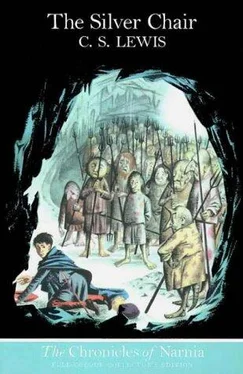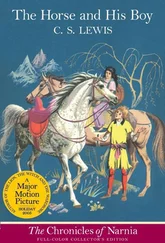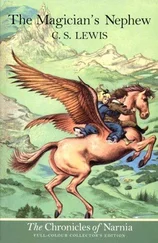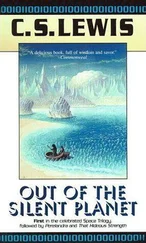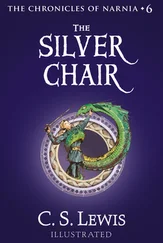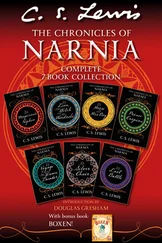Clive Lewis - The Silver Chair
Здесь есть возможность читать онлайн «Clive Lewis - The Silver Chair» — ознакомительный отрывок электронной книги совершенно бесплатно, а после прочтения отрывка купить полную версию. В некоторых случаях можно слушать аудио, скачать через торрент в формате fb2 и присутствует краткое содержание. Жанр: Сказка, на английском языке. Описание произведения, (предисловие) а так же отзывы посетителей доступны на портале библиотеки ЛибКат.
- Название:The Silver Chair
- Автор:
- Жанр:
- Год:неизвестен
- ISBN:нет данных
- Рейтинг книги:3 / 5. Голосов: 1
-
Избранное:Добавить в избранное
- Отзывы:
-
Ваша оценка:
- 60
- 1
- 2
- 3
- 4
- 5
The Silver Chair: краткое содержание, описание и аннотация
Предлагаем к чтению аннотацию, описание, краткое содержание или предисловие (зависит от того, что написал сам автор книги «The Silver Chair»). Если вы не нашли необходимую информацию о книге — напишите в комментариях, мы постараемся отыскать её.
English years: 1942
Narnian years: 2356
The Silver Chair — читать онлайн ознакомительный отрывок
Ниже представлен текст книги, разбитый по страницам. Система сохранения места последней прочитанной страницы, позволяет с удобством читать онлайн бесплатно книгу «The Silver Chair», без необходимости каждый раз заново искать на чём Вы остановились. Поставьте закладку, и сможете в любой момент перейти на страницу, на которой закончили чтение.
Интервал:
Закладка:
It was good, springy ground for walking, and a day of pale winter sunlight. As they got deeper into the moor, the loneliness increased: one could hear peewits and see an occasional hawk. When they halted in the middle of the morning for a rest and a drink in a little hollow by a stream, Jill was beginning to feel that she might enjoy adventures after all, and said so.
“We haven’t had any yet,” said the Marsh-wiggle.
Walks after the first halt—like school mornings after break or railway journeys after changing trains—never go on as they were before. When they set out again, Jill noticed that the rocky edge of the gorge had drawn nearer. And the rocks were less flat, more upright, than they had been. In fact they were like little towers of rock. And what funny shapes they were!
“I do believe,” thought Jill, “that all the stories about giants might have come from those funny rocks. If you were coming along here when it was half dark, you could easily think those piles of rock were giants. Look at that one, now! You could almost imagine that the lump on top was a head. It would be rather too big for the body, but it would do well enough for an ugly giant. And all that bushy stuff—I suppose it’s heather and birds’ nests, really—would do quite well for hair and beard. And the things sticking out on each side are quite like ears. They’d be horribly big, but then I dare say giants would have big ears, like elephants. And—o-o-o-h!—”
Her blood froze. The thing moved. It was a real giant. There was no mistaking it; she had seen it turn its head. She had caught a glimpse of the great, stupid, puffcheeked face. All the things were giants, not rocks. There were forty or fifty of them, all in a row; obviously standing with their feet on the bottom of the gorge and their elbows resting on the edge of the gorge, just as men might stand leaning on a wall—lazy men, on a fine morning after breakfast.
“Keep straight on,” whispered Puddleglum, who had noticed them too. “Don’t look at them. And whatever you do, don’t run. They’d be after us in a moment.”
So they kept on, pretending not to have seen the giants. It was like walking past the gate of a house where there is a fierce dog, only far worse. There were dozens and dozens of these giants. They didn’t look angry—or kind or interested at all. There was no sign that they had seen the travellers.
Then—whizz-whizz-whizz—some heavy object came hurtling through the air, and with a crash a big boulder fell about twenty paces ahead of them. And then—thud!—another fell twenty feet behind.
“Are they aiming at us?” asked Scrubb.
“No,” said Puddleglum. “We’d be a good deal safer if they were. They’re trying to hit that—that cairn over there to the right. They won’t hit it, you know. It’s safe enough; they’re such very bad shots. They play cock-shies most fine mornings. About the only game they’re clever enough to understand.”
It was a horrible time. There seemed no end to the line of giants, and they never ceased hurling stones, some of which fell extremely close. Quite apart from the real danger, the very sight and sound of their faces and voices were enough to scare anyone. Jill tried not to look at them.
After about twenty-five minutes the giants apparently had a quarrel. This put an end to the cock-shies, but it is not pleasant to be within a mile of quarrelling giants. They stormed and jeered at one another in long, meaningless words of about twenty syllables each. They foamed and gibbered and jumped in their rage, and each jump shook the earth like a bomb. They lammed each other on the head with great, clumsy stone hammers; but their skulls were so hard that the hammers bounced off again, and then the monster who had given the blow would drop his hammer and howl with pain because it had stung his fingers. But he was so stupid that he would do exactly the same thing a minute later. This was a good thing in the long run, for by the end of an hour all the giants were so hurt that they sat down and began to cry. When they sat down, their heads were below the edge of the gorge, so that you saw them no more; but Jill could hear them howling and blubbering and boo-booing like great babies even after the place was a mile behind.
That night they bivouacked on the bare moor, and Puddleglum showed the children how to make the best of their blankets by sleeping back to back. (The backs keep each other warm and you can then have both blankets on top.) But it was chilly even so, and the ground was hard and lumpy. The Marsh-wiggle told them they would feel more comfortable if only they thought how very much colder it would be later on and farther north; but this didn’t cheer them up at all.
They travelled across Ettinsmoor for many days, saving the bacon and living chiefly on the moor-fowl (they were not, of course, talking birds) which Eustace and the wiggle shot. Jill rather envied Eustace for being able to shoot; he had learned it on his voyage with King Caspian. As there were countless streams on the moor, they were never short of water. Jill thought that when, in books, people live on what they shoot, it never tells you what a long, smelly, messy job it is plucking and cleaning dead birds, and how cold it makes your fingers. But the great thing was that they met hardly any giants. One giant saw them, but he only roared with laughter and stumped away about his own business.
About the tenth day, they reached a place where the country changed. They came to the northern edge of the moor and looked down a long, steep slope into a different, and grimmer, land. At the bottom of the slope were cliffs: beyond these, a country of high mountains, dark precipices, stony valleys, ravines so deep and narrow that one could not see far into them, and rivers that poured out of echoing gorges to plunge sullenly into black depths. Needless to say, it was Puddleglum who pointed out a sprinkling of snow on the more distant slopes.
“But there’ll be more on the north side of them, I shouldn’t wonder,” he added.
It took them some time to reach the foot of the slope and, when they did, they looked down from the top of the cliffs at a river running below them from west to east. It was walled in by precipices on the far side as well as on their own, and it was green and sunless, full of rapids and waterfalls. The roar of it shook the earth even where they stood.
“The bright side of it is,” said Puddleglum, “that if we break our necks getting down the cliff, then we’re safe from being drowned in the river.”
“What about that?” said Scrubb suddenly, pointing upstream to their left. Then they all looked and saw the last thing they were expecting—a bridge. And what a bridge, too! It was a huge, single arch that spanned the gorge from cliff-top to cliff-top; and the crown of that arch was as high above the cliff-tops as the dome of St Paul’s is above the street.
“Why, it must be a giants’ bridge!” said Jill.
“Or a sorcerer’s, more likely,” said Puddleglum. “We’ve got to look out for enchantments in a place like this. I think it’s a trap. I think it’ll turn into mist and melt away just when we’re out on the middle of it.”
“Oh, for goodness’ sake, don’t be such a wet blanket,” said Scrubb. “Why on earth shouldn’t it be a proper bridge?”
“Do you think any of the giants we’ve seen would have sense to build a thing like that?” said Puddleglum.
“But mightn’t it have been built by other giants?” said Jill. “I mean, by giants who lived hundreds of years ago, and were far cleverer than the modern kind. It might have been built by the same ones who built the giant city we’re looking for. And that would mean we were on the right track—the old bridge leading to the old city!”
Читать дальшеИнтервал:
Закладка:
Похожие книги на «The Silver Chair»
Представляем Вашему вниманию похожие книги на «The Silver Chair» списком для выбора. Мы отобрали схожую по названию и смыслу литературу в надежде предоставить читателям больше вариантов отыскать новые, интересные, ещё непрочитанные произведения.
Обсуждение, отзывы о книге «The Silver Chair» и просто собственные мнения читателей. Оставьте ваши комментарии, напишите, что Вы думаете о произведении, его смысле или главных героях. Укажите что конкретно понравилось, а что нет, и почему Вы так считаете.
